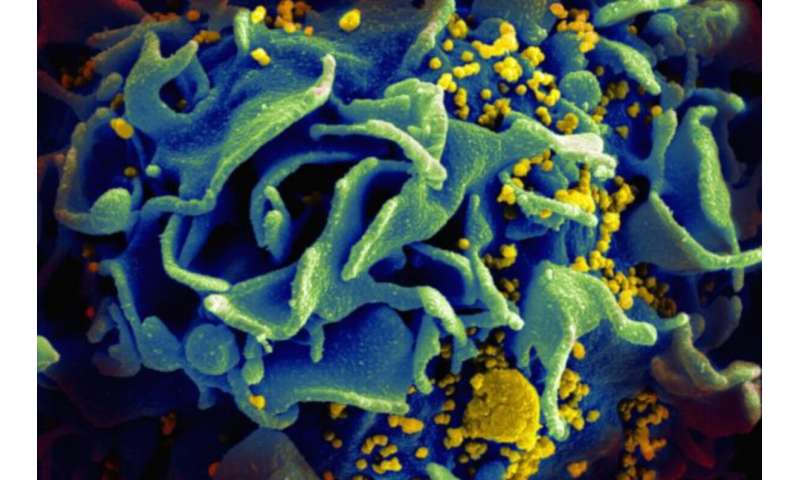
In October 2019, the U.S. Food and Drug Administration approved a second medication for use as HIV preexposure prophylaxis, also known as PrEP, sparking controversy about which drug should be prescribed. Gilead Sciences, which manufactures both approved drugs, has argued that the new drug is safer and more effective than the old drug. But these claims are overstated, say a team of clinical and public health experts. Their commentary, “Tenofovir Alafenamide for HIV Preexposure Prophylaxis—What Can We DISCOVER About Its True Value?”, appears in the January 14 issue of Annals of Internal Medicine.
PrEP, which is 99% effective in preventing HIV, exists in two forms: tenofovir disoproxil fumarate with emtricitabine (TDF/FTC) – best known as Truvada, its brand name in the U.S. – and tenofovir alafenamide with emtricitabine (TAF/FTC), known as Descovy. TDF/FTC has been used for PrEP for more than 7 years, with ample evidence of its safety and effectiveness. “These drugs are equally effective when used for PrEP in gay and bisexual men and transgender women, and the potential safety benefits of TAF/FTC over TDF/FTC have not yet been shown to be clinically significant,” said lead author Douglas Krakower, MD, Assistant Professor at the Harvard Pilgrim Health Care Institute, Beth Israel Deaconess Medical Center, and Harvard Medical School.
The high cost of PrEP medications, around $24,000 per year in the U.S., has been a major barrier to PrEP use. Activists have argued that taxpayer money funded the development of PrEP medications, and the U.S. Department of Health and Human Services recently sued Gilead Sciences over patent infringement. The older PrEP medication, TDF/FTC, will be available as a generic as early as 2020, which could reduce costs and increase access. But Gilead Sciences holds the exclusive rights to manufacture TAF/FTC until 2022 and has requested a patent extension to 2025. If the generic version of TDF/FTC is perceived to be less safe, uptake of TAF/FTC would presumably rise—with cost ramifications.
“With the exorbitant cost of these drugs, there are huge public health and economic implications if most PrEP users begin to use the newer TAF/FTC pill rather than TDF/FTC for PrEP,” said senior author Julia Marcus, Ph.D., Assistant Professor in the Department of Population Medicine at Harvard Pilgrim Health Care Institute and Harvard Medical School. “Gilead is asking us to ‘update’ our PrEP to TAF/FTC, but that’s not a clinically necessary or cost-effective choice for the vast majority of PrEP users.”
The authors examined the available data on the safety, efficacy, and public health context for the two PrEP medications. Robust data show the effectiveness of TDF/FTC in all priority populations at risk for HIV, including gay and bisexual men, transgender women, people who inject drugs, and heterosexuals whose partners are living with HIV. In contrast, the only efficacy data for TAF/FTC come from the DISCOVER trial, which enrolled solely gay and bisexual men and a small number of transgender women.
Source: Read Full Article
